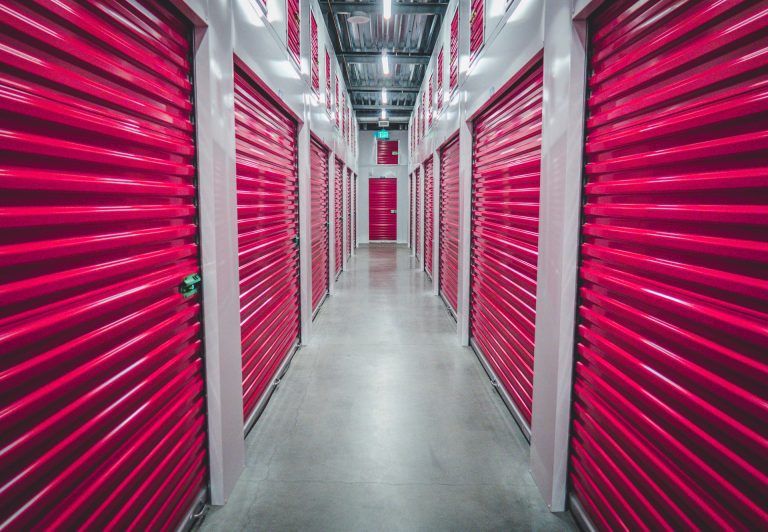
What is self-storage real estate?
Self-storage properties serve as versatile assets designed to accommodate numerous individual storage units of varying sizes. The self-storage market is experiencing rapid growth, with projections indicating it will surpass $64 billion by 2026.
Individuals and businesses rent these spaces to store possessions like furniture, clothes, equipment, business records, inventory – just about anything one can imagine. The top five reasons people use self-storage are for moving purposes, lack of space at home, change in household size, downsizing, and business purposes.
These properties have garnered significant attention from real estate investors due to several compelling factors:
Steady Income
Perhaps the most compelling reason for investors to turn to self-storage is the likelihood of a steady revenue stream. The demand for storage units increased to 14.5 million in 2022, up by 970,000 since 2020, with owners seeing an annual return on investment of almost 17% over a nine-year span
Recession-Resistant Investment
Self-storage real estate has proven to be notably resilient during difficult economic times. For example, census data show that self-storage revenue increased steadily during the pandemic and occupancy averaged 96.5% in the third quarter of 2021 compared to 91.5% in the first quarter of 2020. As people relocated and downsized, or needed to make room for home offices, they needed space to store belongings.
Even during the Great Recession of 2008, while most REITs suffered losses, self-storage showed a positive 5% return.
Lower Operating Costs
Compared to other income-producing property types, operating costs tend to be lower for self-storage units, typically around 35% of revenue. These spaces do not experience use as intensive as apartment, office, or retail properties, and have far fewer amenities. No late-night calls for clogged plumbing. On average, property taxes account for almost one-third of the expenses for this property type.
Stable Cash Flow
With a large number of relatively small units, the loss of an individual tenant does not typically impact cash flow the way it would with the loss of an apartment or commercial tenant. Also, when a unit does go vacant, it can usually be ready for a new tenant immediately, saving both the rollover time and cost usually needed for other types of space.
Advantageous Leases
Month-to-month leases are the norm, so owners can adjust rates quickly if market conditions change. Some owners take payment by automatic credit card or ACH billing, reducing the chances of default. No property owner relishes the prospect of an eviction, but in many states, the process is, at least, less difficult and time-consuming than it would be with an apartment or commercial tenant. And you may be able to recover at least some of your economic loss via a lien that permits you to auction off a unit’s contents.
Of course, anything worth having or doing comes with some challenges. Here are a few:
Market Saturation
One potential risk in the self-storage sector, as in virtually any area of real property, is the risk of oversupply. To be sure, an essential part of your planning is to evaluate whether the market where you plan to invest is becoming saturated. This can occur if there is a spike in the construction of new facilities, if supply is starting to outstrip demand, or if institutional investors are beginning to dominate your market. Your due diligence needs to be focused to be on the lookout for these warning signs as you evaluate your long-term plans.
Management
While you probably will not have a lot of the management duties that are a familiar part of owning properties that are occupied by real people, there are still some hands-on considerations with self-storage real estate. Think of the property as your own retail establishment. You will probably need to have a person on-site during business hours to control access to the facility, deal with walk-in customers wanting to sign up, or make equipment like hand trucks or platform trucks available for use. Self-storage facilities in the U.S. employ, on average, 3.5 employees per facility. https://alansfactoryoutlet.com/blog/self-storage-industry-statistics/
Security
We doubt that you’ll keep the Hope Diamond or your Mickey Mantle rookie baseball card in your self-storage cubicle, but folks often do store valuable stuff. These facilities need to ensure that they have robust access-control systems in place and video surveillance. They also need to maximize security of the storage units themselves. Tenants will usually provide their own locks, but the units should be built with reinforced walls and doors to make them less vulnerable to forced entry.
Conclusion
The self-storage real estate sector, with its potential for high returns, recession-resistant demand, and relatively low operational costs can offer compelling investment opportunities. It’s also important to acknowledge that challenges exist, like hands-on management responsibilities, robust security demands, and the possibility of market saturation. Investors who approach this sector with careful due diligence and a realistic understanding of the pros and cons should find themselves in a position to capitalize on the growing demand for self-storage facilities.
The information presented in this article represents the opinions of the author and does not necessarily reflect the opinions of RealData® Inc. The material contained in articles that appear on realdata.com is not intended to provide legal, tax or other professional advice or to substitute for proper professional advice and/or due diligence. We urge you to consult an attorney, CPA or other appropriate professional before taking any action in regard to matters discussed in any article or posting. The posting of any article and of any link back to the author and/or the author’s company does not constitute an endorsement or recommendation of the author’s products or services.
Mastering Real Estate Investing
Learn how real estate developers and rehabbers evaluate potential projects. Real estate expert Frank Gallinelli — Ivy-League professor, best-selling author, and founder of RealData Software — teaches in-depth video courses, where you’ll develop the skills and confidence to evaluate investment property opportunities for maximum profit.